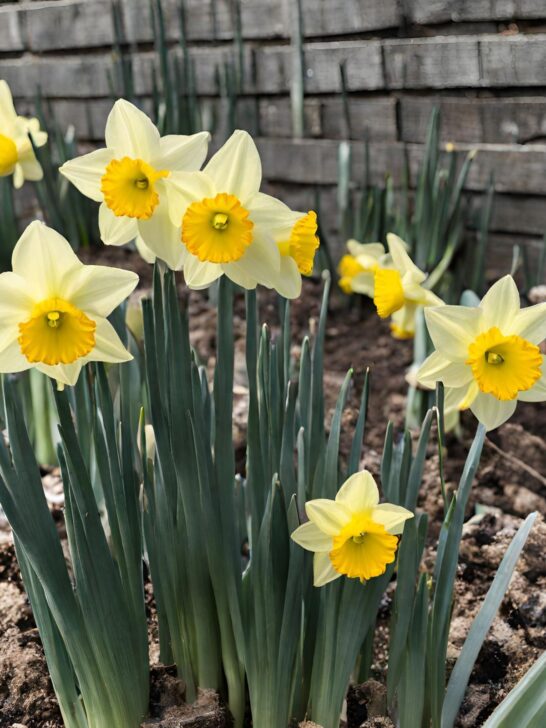Looking to keep those pesky squirrels away from your garden or bird feeders? Thankfully there are plenty of natural squirrel repellent ideas that are safe, effective, and easy to make right at home.

Squirrels are kind of cute, but they don't come without their own list of destruction. Squirrels can dig up flower bulbs out of your flower beds along with small plants, gnaw on trees and structures, raid bird feeders, and create nests in unwanted areas, all of which can lead to damage and dismay.
Why Use Natural Squirrel Repellent Methods
Natural repellents for squirrels offer advantages over harmful chemicals. Most importantly, they're typically human, pet, and environmentally safe and friendly. Unlike chemical methods, natural methods typically utilize things that won't harm you, your pets, or the planet.
This also means that they won't harm beneficial insects, birds, and other wildlife. Something we should all be a little more conscious of.
Since they're homemade, they're usually inexpensive to make, which makes them far more cost-effective than chemical solutions.
These methods are all non-lethal, letting you co-exist with wildlife while still doing your best to keep them out of areas you don't want them.
Tips for Effective Natural Squirrel Repellent Usage
While some of these are quite powerful options, implementing natural squirrel repellents effectively involves a combination of strategies and consistent application.

First, you should identify problem areas around your property where squirrels are the most active and/or have done the most damage.
When implementing these methods, it is best to utilize more than one for the best results. Try using scent-based methods along with visual methods or physical barriers.
Be sure to reapply any scent-based methods regularly as the scent will wear off. This is especially important after rainfall or watering the garden.
Sometimes, squirrels may become accustomed to certain scents or tastes over time, reducing the repellent's effectiveness. Rotate between different types of repellents to prevent this from happening.
Above all, practice both patience and persistence. Sometimes it can take a while to find what works or a combination of things that works. So be patient, but continue to be persistent.
Herbal and Essential Oils To Repel Squirrels

Cayenne pepper. Commonly used to repel squirrels due to its strong scent and spicy taste, which irritates squirrels' senses, cayenne pepper is simple to use. Simply sprinkle in areas where squirrels frequent to keep them from damaging plants and other things. Reapply every so often, and after rainfall.
Peppermint oil. Again because peppermint oil has a strong scent, squirrels' senses become irritated when it is present making it an effective squirrel repellent. Mix some peppermint oil with a little water in a spray bottle and simply spray it around the garden.
You could also soak cotton balls or paper towels in peppermint oil and place them in attics and other places where you don't want squirrels. Replace them every couple of weeks.
DIY Garden Squirrel Repellent
Squirrels don't like the odor of potent garlic and onions. Making a homemade liquid repellent with natural ingredients is simple, inexpensive, and effective solution. Here's how to make it:
Ingredients for Squirrel Repellent Spray:
- 3 Garlic Cloves
- 1 Onion
- 2 Cups Water
- Spray Bottle
Simply mince the onion and garlic. Place it in two cups of water in a saucepan and boil for 20 minutes. Allow it to cool and then strain out the garlic and onion. Pour the water into a spray bottle.
Use spray around areas where squirrels are active or where you want to prevent them from going, such as garden beds, flower pots, or bird feeders. Application frequency will vary, but should be reapplied every 2-3 days and after heavy rainfall.
Predator Urine as a Strong Squirrel Repellents
Squirrels have a few natural predators and much like repelling snakes, you can utilize the urine of these predators to repel squirrels with great success.
You can find fox or coyote urine at garden supply stores and sporting goods stores. Simply apply repellent urine around areas where squirrels frequent or areas you don't want them to be. Again, reapply every few days and after heavy rainfall.
Trim Trees and Bushes
Squirrels love to use trees and shrubs as pathways to your gutters, roof, attic, and garden. Therefore, simply make sure to keep branches trimmed back away from your house and garden area to make it more difficult for them to use them as pathways directly to the source.
Motion Activated Sprinklers to Keep Squirrels Out of the Garden
Motion-activated sprinklers are an effective way to keep squirrels and other animals out of an area.
These sprinklers are equipped with sensors that detect movement within an adjustable range. When a squirrel or other animal enters the sensor's field of view, it triggers the sprinkler to release a sudden burst of water. Making the animal move on to a drier area.
This method works best if you leave the sprinklers activated at all times. Regardless, make sure to leave them activated when squirrels are the most active which is during the morning and late afternoon.
Companion Planting for Squirrel Control
Companion planting for squirrel control involves strategically planting certain species of plants that squirrels find unappealing or that act as natural deterrents. Simply plant these plants in your flower garden or any place you don't want squirrels to touch.

Try these plants for the best results:
Daffodils. These plants contain toxic alkaloids that deter squirrels, making them avoid them.
Hyacinths. These produce a strong fragrance that squirrels find unappealing, making them a good choice for deterring squirrels from garden beds.
Alliums (onion, garlic, chives, scallions). All plants from the allium family emit a strong odor that squirrels find unpleasant, helping to deter them from the area.
Mint. The strong aroma of mint can confuse and repel squirrels, making it a useful plant for deterring them from your garden by planting it around the perimeter in pots.
Rosemary. The unpleasant odor of rosemary can deter squirrels and other pests from entering your garden.
Lavender. Like mint, lavender emits a strong scent that squirrels find unpleasant. Planting lavender around your garden can help deter squirrels while adding beauty and fragrance to your landscape.
Marigolds. Marigolds produce a strong scent that repels many pests, including squirrels. Planting marigolds around the perimeter of your garden can help deter squirrels from entering.
Snowdrops. Another bulb plant that contains toxic compounds, snowdrops are also unattractive to squirrels.
Using Safflower Seeds to Keep Squirrels Out of Feeders
Safflower seeds have a bitter taste that many squirrels find unpalatable. While birds such as cardinals, chickadees, and finches enjoy safflower seeds, squirrels are less likely to consume them.
So, by filling bird feeders with safflower seeds instead of the typical bird seed, you can attract the bird species you want while discouraging squirrels from raiding the bird feeder.
Safflower seeds can be used in most types of bird feeders, including tube feeders, hopper feeders, and platform feeders. They can also be used in combination with mixed seed blends, allowing you to customize the bird seed and still deter squirrels.
While some squirrels may still try to utilize the bird feeder as a buffet, most will find other food sources if there are unappetizing safflower seeds present.
Visual and Physical Barriers to Repel Squirrels
Visual and physical barriers can be highly effective in repelling squirrels from specific areas of your property.
You can try hanging up shiny objects such as aluminum pie pans, old CDs, or even wind chimes to help deter squirrels from entering the area.
Decoys such as owls and snakes can sometimes be effective as well.
Using fencing that is at least 3 feet high and buried 6 inches underground can help keep squirrels out of the garden. Utilizing some mesh netting on top of plants, or over the entire garden space can also help.
Wrap tree trunks with metal tree guards or hardware cloth to prevent squirrels from climbing up and nesting in the tree. Make sure the guards are securely fastened to the tree to withstand squirrel attempts to chew or pry them off.
If everything you try fails and you continue to have a squirrel problem, it may be in your best interest to contact a professional to help you further.
Other Natural Repellent Ideas to Try:
- How to Get Rid of Mice | Tips for Natural Control
- Best Natural Rabbit Repellent Tips for Your Garden
- 10 Ways to Naturally Repel Spiders
If you found this post on natural squirrel repellents helpful, I’d love to hear your thoughts and questions in the comments below! Also, feel free to follow me on Facebook and Pinterest for more inspiration!






Leave a Reply